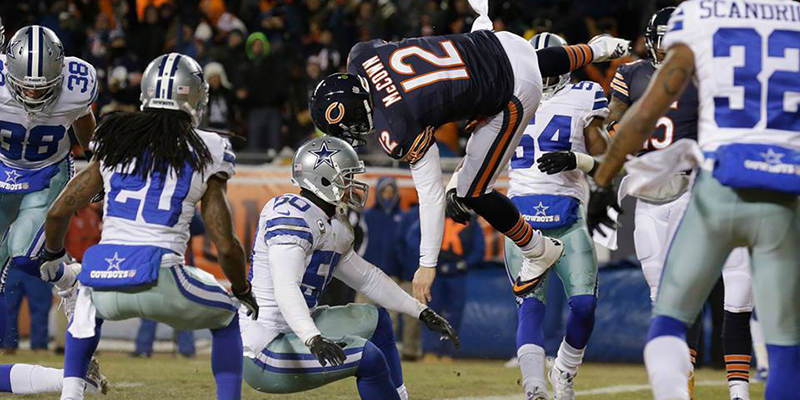Why 30 Former NFL Players Are Donating Their Brains To Science
Thirty former NFL players have pledged to donate their brains for research as a part of the “First Brain Pledge Month,” according to the Concussion Legacy Foundation.
At the moment, the list includes Randy Cross, Keith Sims, and Shawn Springs who will all join the 1,467 other former athletes who have pledged their brains to science since 2008.
The reason for the pledges is to address a serious controversial disorder called CTE, which stands for Chronic Traumatic Encephalopathy.
CTE is a rare condition caused by repeated head trauma which leads to long-term brain degeneration.
Scientists say that CTE causes parts of the brain to waste away, which can harm communication between brain cells.
The symptoms of CTE include, but are not limited too, difficulty thinking, depression, memory loss, suicidal thoughts, and suicidal behaviors.
In 2012, ex-San Diego Chargers and Hall of Fame linebacker Junior Seau was found dead from a self-inflicted gunshot wound to the chest.
Later, studies done by the National Institutes of Health ruled that Seau suffered from CTE. In fact, the NFL is in danger of extinction because of it.
In a PBS documentary entitled “League of Denial“, Doctor Omalu, a Nigerian-born neuroscientist, and discoverer of Chronic Traumatic Encephalopathy, recalled a time where he brought his research to an NFL doctor
“And the NFL doctor said to me,” Dr. Omalu says, “Bennett! Do you know the implications of what you’re doing?”
“Why don’t you tell me?” Dr. Omalu responded back.
“If 10 percent of mothers in this country, began to perceive football as a dangerous sport. Then that is the end of football.”
More players are retiring prematurely because of the dangers and risks associated with the disorder.
In 2015, Chris Borland a prominent rookie and linebacker for the San Francisco 49ers decided to call it quits, after just one year in the league. His reasoning? CTE.
“I just honestly want to do what’s best for my health,” Borland said ” From what I’ve researched and what I’ve experienced, I don’t think it’s worth the risk.”
Because CTE can only be diagnosed post-mortem, there is still a lot that is unknown about it; the research is very important.
According to Concussion Legacy Foundation co-founder Chris Nowinski,
“Brain Bank research is an essential step in learning to prevent and treat CTE and has provided insights that have launched multiple studies at the Boston University CTE Center focused on developing diagnostics and therapeutics.”
Researchers are gearing up to use a brain imaging and biomarkers to help diagnose the disorder, while the NFL is studying preventative measures.
Is the NFL in danger of extinction? Only time will tell.













You must be logged in to post a comment Login